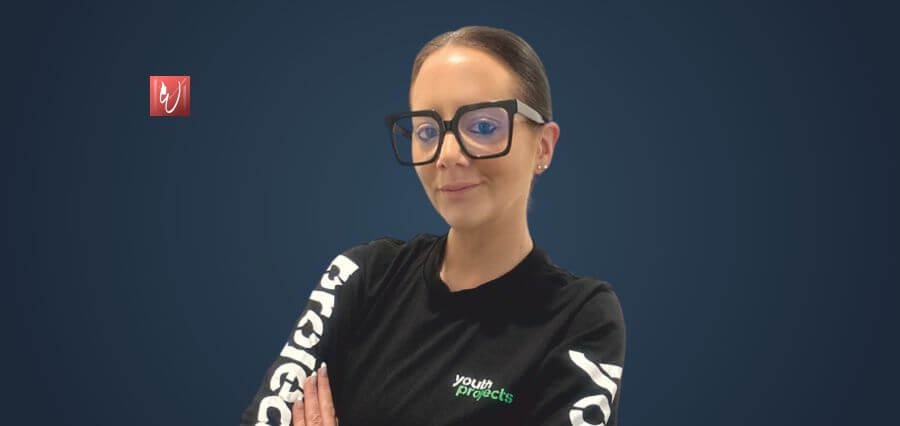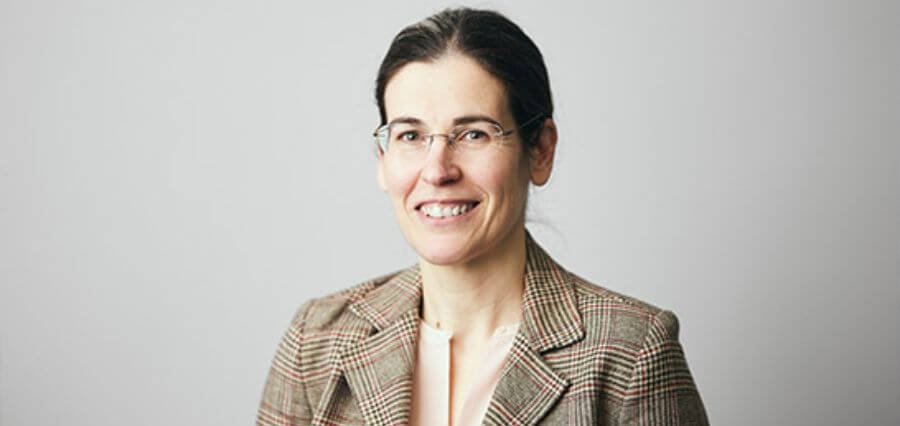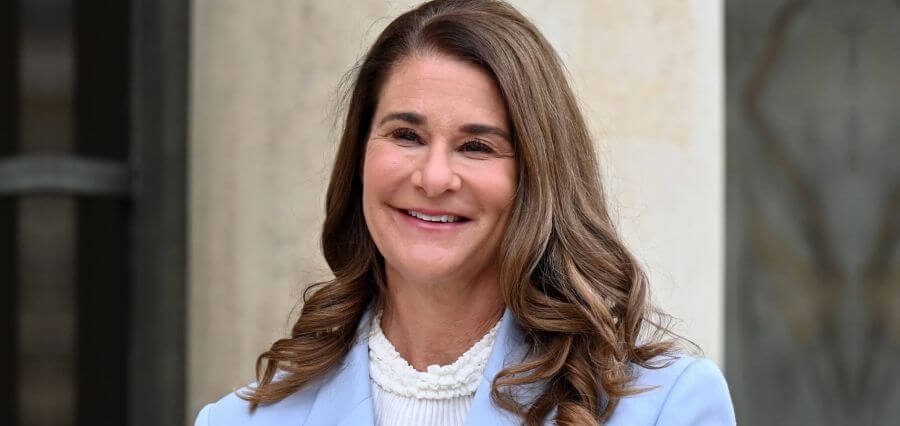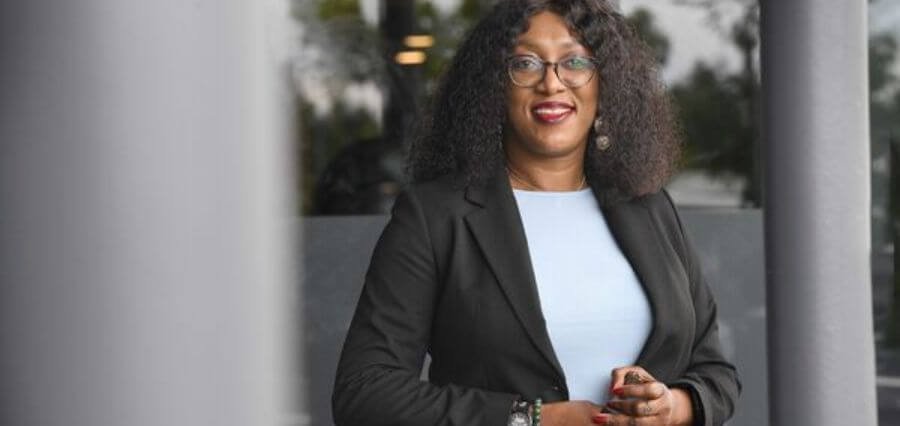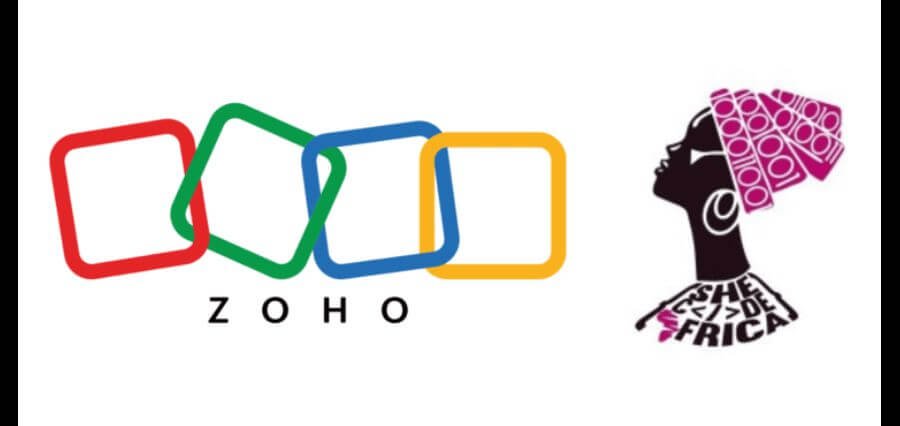Driving Organisational Success!
Human resources have progressed from its traditional functions of hiring and compliance to a strategic role central to shaping the success of modern organisations. The focus today extends beyond recruitment, highlighting employee engagement, well-being, and leadership development. With changing work environments, there is a growing focus on creating inclusive cultures that cultivate personal and professional growth. HR professionals now play an important role in aligning individual strengths with organisational goals while also ensuring that diverse perspectives are valued. This transformation highlights the essential role of HR in creating workplaces that not only attract talent but also nurture and retain it.
Angela Gaylard, the Chief People Officer, is a prominent leader shaping this industry’s evolution. Her approach is deeply rooted in empathy, authenticity, and a strong belief in empowering individuals. Angela’s leadership balances strategic vision with genuine care for people’s well-being. By nurturing open communication and trust, she cultivates an environment where employees feel supported to bring their best selves to work. Angela is particularly focused on creating psychologically safe spaces where transparency and inclusion are central, ensuring that the employees at Youth Projects thrive both personally and professionally.
At Youth Projects, Angela leads the talent attraction, retention, experience and safety strategies, ensuring that the organisation’s mission to break cycles of disadvantage extends internally to its employees. The organisation has been a leader in supporting marginalised groups through comprehensive services, and Angela’s role ensures that its staff, many with lived experiences, feel valued and engaged. She acknowledges that individual and organisational growth are not mutually exclusive. Through her initiatives, the organisation is committed to providing a supportive environment that aligns with its values, Angela’s focusing on psychological safety and talent development has to drive both individual and organisational success, whilst providing a supportive and values-aligned environment.
Let’s delve into Angela’s innovative leadership journey in the field of Human Resources.
Aligning Strengths and Talents for Career Growth
Angela’s career journey may not be the typical path for someone in People and Culture or a Chief People Officer role. While it has involved a great deal of hard work, opportunism has allowed her to work with inspirational leaders who believed in her and took a chance.
Her background is rooted in program operations and change management, and she did not start studying until her 30s. In fact, she has only spent the past three years working in Human Resources. Early in her career, she came across the IKIGAI model, which helped her define and articulate her passion: empowering people. Angela has been intentional about choosing roles and leaders that encourage and allow her to pursue that passion.
Though imposter syndrome occasionally creeps in, her self-belief and willingness to have direct conversations are what have propelled her forward. She has always put herself forward for new projects, learned as much as she could along the way, and continued having open conversations with her managers about her career trajectory. She firmly believes that if one is not their own cheerleader, no one else will be.
She has also taken the time to understand her strengths and talents and to align these to her positions and what is next. She seamlessly flexes her perspective from strategic to practical and back again.
Prioritising Engagement and Well-Being
In her role as Chief People Officer at Youth Projects, Angela is responsible for overseeing the entire people experience. This spans attraction, onboarding, employee engagement, development, and retention. Central to this is creating an inclusive, supportive environment where all staff, especially those with lived experience, feel valued and empowered to contribute their best.
For 40 years, Youth Projects has been deeply committed to breaking the cycle of disadvantage. Their employees have provided frontline support to young people and individuals facing disadvantage, unemployment, homelessness, mental health challenges, and alcohol and other drug dependencies. Recognising the challenging and varying needs of the people they work with, their highly skilled multidisciplinary teams go above and beyond, 365 days a year, to deliver wrap-around, judgement-free services.
Given their workforce is centred around lived experience, engagement and well-being are paramount. Due to the unique insights and expertise of their teams, they centre the person—whether employee or client—in every decision they make. This ensures that every individual’s needs are met with compassion and that they are supported and understood throughout their journey with the organisation.
Psychological safety and trauma-informed leadership are essential to their approach. It is crucial that team members feel safe bringing their whole selves to work. This starts with building a culture of trust, openness, and support. They take a holistic approach to safety, addressing both physical and psychological well-being to ensure a resilient, high-performing workforce.
A key focus of Angela’s role is talent management and development. She works to identify and nurture talent potential within the organisation, aligning professional growth with the organisation’s strategic goals. By offering targeted development opportunities, they build a high-performance team that is adaptable, skilled, and motivated to excel in a challenging environment.
Additionally, she leads initiatives around diversity and inclusion, ensuring that their culture reflects the organisations mission and values while also driving performance through a strong focus on continuous growth and development.
Tailoring Leadership and Communication Styles
Her leadership style is adaptable. Often shifting throughout the day based on the situation, and it is always grounded by three key principles:
- Most People Have Good Intentions: She believes that most people do not set out to do harm. Approaching challenges with empathy helps her recognise that mistakes are often due to miscommunication or misalignment rather than malice.
- Honesty is the Foundation of Trust: Transparency is essential. She believes in being straightforward about both challenges and successes, as open communication builds trust and strengthens the team.
- Authenticity Leads to Stronger Connections: People respond best when they feel others are genuine. Being authentic and encouraging others to be the same fosters meaningful relationships and a culture of inclusion where diverse perspectives are truly valued.
She firmly believes that leadership, communication, and work styles need to be tailored to the individual, the situation, and the context. This approach ensures that people feel seen and heard, and they are more receptive to feedback when it is given at the right moment.
That said, there are times when directness is necessary, especially in business. By building a foundation of trust and honesty, Angela’s team knows that when she is direct, it is coming from a place of support and a genuine desire to help them grow.
Vision for Inclusive and Empowering Workplaces
As a gender equality campaigner and LGBTQIA+ ally, Angela’s vision is to cultivate workplaces that are not only safe and fair but also empower individuals to bring their authentic selves to work. She believes that everyone should have equal access to opportunities and be seen and valued for who they are.
Having faced her own challenges, particularly as a neurodivergent woman, she is acutely aware of the barriers that many individuals encounter in the workplace. However, she also recognises the privileges that she holds. This self-awareness fuels her passion for advocacy. She understands the importance of using her position to amplify the voices of those who may not have the same access or confidence to speak out.
Angela’s goal is to create a culture where everyone feels safe to express themselves and contribute their unique perspectives. This means actively listening to and uplifting marginalised voices to ensure that all employees feel heard and respected. By holding space for individuals who may struggle to advocate for themselves, she hopes to create an environment of inclusivity where diversity is not just acknowledged but celebrated.
Ultimately, she hopes to inspire others in leadership positions to recognise their influence and responsibility in shaping an inclusive workplace culture. This influence and responsibility can break down barriers, challenge biases, and ensure that all individuals can thrive, regardless of their background or identity. By championing these values, she aims to create lasting change that makes a meaningful impact on workplace inclusion and diversity for years to come.
Aligning Career Paths with Organisational Goals
Her approach to developing and nurturing talent is rooted in understanding people’s strengths and transferable skills. Angela believes that while processes and systems can be taught, qualities like drive, leadership, or passion cannot. Self-determination is key, and she focuses on identifying these intrinsic qualities in individuals and aligning their career paths to the broader goals of the organisation.
To start, she ensures she has a deep understanding of the organisation’s strategic plan and growth areas. With this insight, she collaborates with team members and leaders to create tailored development plans. This ensures that individual professional growth aligns with the organisation’s objectives. By utilising each person’s unique strengths, she helps them step into roles where they can thrive and contribute meaningfully to collective success.
For her, it is not simply about placing people in roles; it is about unlocking their potential and creating a supportive environment where their passion and leadership can flourish. She focuses on creating individualised development plans and providing opportunities such as higher duties, secondments, or new projects to enhance individuals’ capabilities and confidence.
She sees her role as opening the door (and sometimes putting up a fluorescent sign); it’s up to the individual to walk through it.
Balancing Demanding Roles with Personal Well-Being
Angela’s philosophy on maintaining work-life balance is to lead by example, especially in a demanding leadership role. One cannot promote balance if they do not live it themselves. There are times when workloads peak but having a supportive partner during these periods and an executive team that prioritises employee wellbeing have been a game-changer for her.
She also focuses on self-care, understanding her peak performance times, and being kind to herself. She believes, “While there will always be work to do, you can’t pour from an empty cup.” Prioritising her well-being enables her to lead more effectively and support her team in achieving balance.
Being authentic and vulnerable in the workplace is also key. By being open and honest about personal pressures or poor mental health, she creates a space where her peers and team not only understand what she is going through but also feel safe to share when their work-life balance is off. This creates a culture of support where everyone feels comfortable addressing the challenges that can affect both professional and personal life.
Staying Updated with Workforce Development Trends
In a swiftly changing workplace, she stays across the latest trends in workforce development and employee well-being by utilising a wide range of resources. She listens to podcasts and reads extensively, drawing insights from areas like social politics, professional sports, and pop culture. Since workforce development is deeply connected to human behaviour, she recognises that valuable lessons can be found across many fields.
She also works closely with mentors, learning from industry veterans who have extensive experience and from those who are new to the field. This blend of perspectives keeps her grounded in foundational practices while also exposing her to fresh, innovative approaches.
Additionally, she prioritises staying connected with teams. She spends 2 to 3 days a week on-site with the teams, listening to their experiences, challenges, and successes. This approach not only keeps her attuned to the realities on the ground but also strengthens her ability to manage change, as she understands their pressures and can communicate the operational benefits of new initiatives more effectively.
Empathy through Shared Experiences
According to Angela, lived experience is fundamental in shaping the future workforce. It forms the foundation of the deep connections people establish in their roles, whether in service-based environments or product-focused industries.
When team members have walked in their clients’ shoes—whether they are an AOD worker or a software salesperson—they can genuinely say, “I see you; I’ve been there, and these are the tools I used to get through it.” This kind of empathy and understanding cannot be taught in a classroom; it is something only lived experience provides.
Beyond relational connection, lived experience brings a plethora of transferable skills. By taking the time to unpack someone’s life experiences, you may find incredible abilities in problem-solving, risk mitigation, leadership, conceptual thinking, prioritising, and relationship-building. The key is helping people recognise these skills as strengths—transforming their experiences into a superpower they can be proud of.
Angela is particularly passionate about this because it is such a core part of who she is. Her own upbringing has equipped her with instincts that drive her work today. She often shares how few people can pivot in project implementation, quite like someone who grew up in an unstable home. The ability to adapt, problem-solve, and move quickly between options comes naturally when it’s been a daily necessity in life.
Building a Psychologically Safe Workplace
Angela knows that creating a psychologically safe workplace can be challenging. Her first piece of advice to aspiring leaders is to find their ‘tribe.’ The tribe she has built within her current workplace, through networks, and from previous workplaces serves as an invaluable sounding board when she needs to bounce ideas, debrief, or handle unexpected challenges.
In today’s world, poor mental health is increasing, family violence is high, and homelessness is on the rise. When these statistics are applied to the workforce, the load people are carrying when they walk into work becomes evident, even before their job has started.
Holding space for this is the first step. People only perform and feel safe when they feel engaged and supported, so providing support is essential. This could include flexible work options, a robust EAP program, or an environment where someone can sit down with their manager and say, “Life is a lot right now.” It is important to tailor support to wrap around them. Psychological safety is far more nuanced than physical safety. Leaders need to remind themselves that it is not their job to fix everything; they just need to show empathy and refer to appropriate support.
The next step is equality. There is substantial evidence that shows equity strengthens psychological safety by creating a fair, inclusive, and balanced environment where employees feel respected, valued, and empowered to express themselves fully.
Shifting Workplace Dynamics for Well-Being
Looking ahead, Angela’s future goals at Youth Projects centre on ensuring that their talent continuously evolves and adapts to meet the diverse needs of their clients. She is committed to creating a workplace where staff genuinely enjoy coming to work; it should feel like an extension of their lives, not a drain on their energy.
She recognises that workplace dynamics are shifting, and she aims to create an environment where everyone feels safe and sees, recognising that the dynamics in the workplace are shifting. Particularly as Gen Z becomes more prominent in the workforce, there is a shift toward more authentic expressions of identity and a desire for meaningful support in their careers. A job is no longer just a job; it is a part of our lives that should add positively to our well-being and personal growth.
She believes that by embracing these changes and shifts, Youth Projects can cultivate a culture that meets the evolving needs of its clients and empowers staff to thrive. By adapting Youth Projects workplaces to be more inclusive, supportive, and aligned with the values and expectations of the workforce, Angela is creating a future where work enhances lives and allows everyone to reach their full potential.

